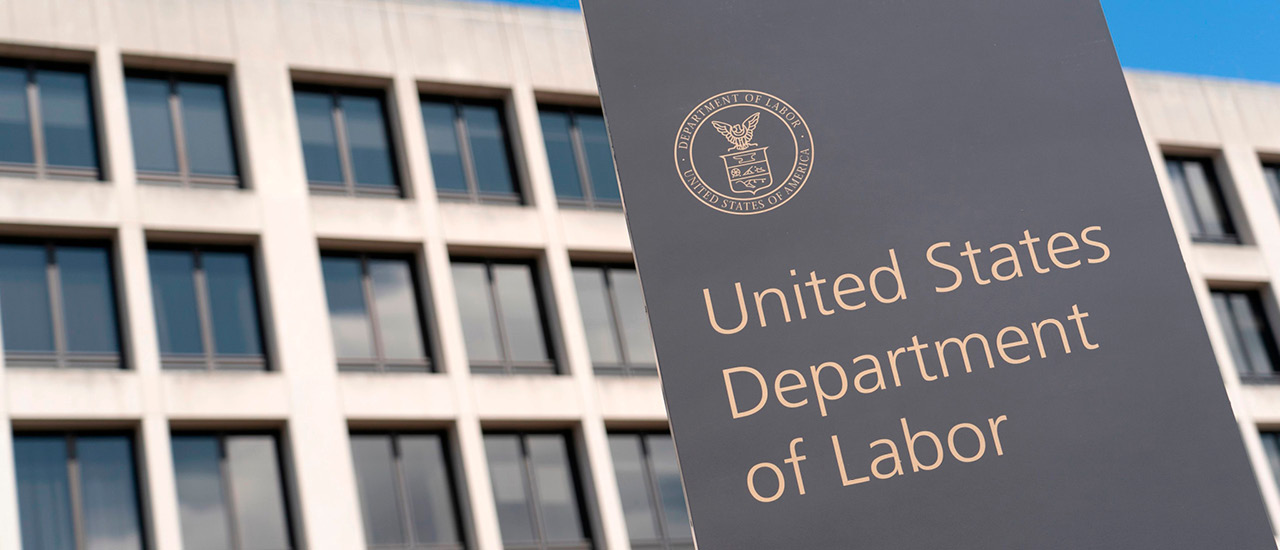DOL Issues New Wage Guidance for Remote Work

Employers must pay employees working remotely for all hours worked and make a reasonable effort to determine those hours, the U.S. Department of Labor’s Wage and Hour Division said in new guidance.
“If the employer knows or has reason to believe that work is being performed, the time must be counted as hours worked,” the guidance states.
“An employer may have actual or constructive knowledge of additional unscheduled hours worked by their employees, and courts consider whether the employer should have acquired knowledge of such hours worked through reasonable diligence.”
The DOL estimates that in 2019, one-fourth of the U.S. workforce (24%) performed some work at home on an average day.
That number has exploded during the pandemic.
Reporting Procedures
Employers are obligated by federal law to track the hours of employees working remotely, DOL said.
It suggests that employers provide a reasonable reporting procedure for non-scheduled time.
“If an employee fails to report unscheduled hours worked through such a procedure, the employer is generally not required to investigate further to uncover unreported hours,” the guidance said.
Employers typically know the regularly scheduled hours of employees working remotely, but may also know of other hours worked through employee reports or other notifications.
“The [Fair Labor Standards Act] standard for constructive knowledge in the overtime context is whether an employer has reason to believe work is being performed,” the guidance states.
“If an employer knows or has reason to believe the work is being performed, they must count the time as hours worked.”
Compensation
While an employer can determine a remote worker’s activity by checking access to work-issued electronic devices outside work hours, the guidance says “reasonable diligence generally does not require the employer to undertake impractical efforts such as sorting through this information to determine whether employees worked hours beyond what they reported.”
The FLSA generally requires employers to compensate their employees for all hours worked, including overtime hours.
It also requires employers to “exercise control to ensure that work is not performed that they do not wish to be performed.”
Employees working remotely must keep accurate records.
“When the employee fails to follow reasonable time reporting procedures, (he or) she prevents the employer from knowing its obligation to compensate the employee,” the guidance said.
“Accordingly, failure to compensate an employee for unreported hours that the employer did not know about, nor had reason to believe was being performed, does not violate the FLSA.”
Flexible Hours
CBIA HR counsel Mark Soycher notes the guidance does not reflect any change in compliance standards or obligations.
“But in this COVID-19 environment, where remote work arrangements have become far more common than ever before, it highlights the need for employers to update and implement reasonable time reporting procedures that will continue to allow for accurate tracking and reconciling hours worked and hours paid,” Soycher said.
Younger workers may be more inclined to shun nine-to-five work schedules and embrace flexible arrangements.
“The increased number of younger workers who may be more inclined to shun the traditional nine-to-five work schedule and embrace flexible work arrangements—work anytime, anywhere—still need to accurately record actual hours worked.”
And Soycher emphasized that employers still retain the right to schedule work time, and tell employees when they are not to work.
“If employers don’t want to pay workers at certain times or for certain hours, they must address non-cooperative workers with clear direction and, if necessary, discipline when they engage in work when it is not scheduled or wanted,” he said.
For more information, contact CBIA’s Mark Soycher (860.244.1900) | @HRHotline
RELATED
EXPLORE BY CATEGORY
Stay Connected with CBIA News Digests
The latest news and information delivered directly to your inbox.


